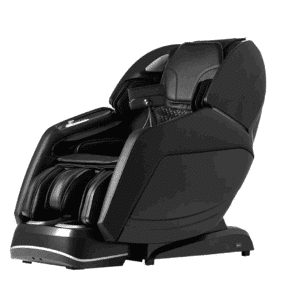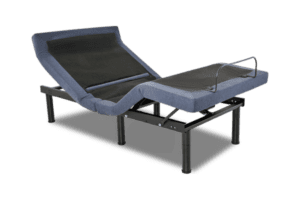A–Z Guide to Determining the Best Direction to Sleep In
Which Direction is Best to Sleep In?
The question of which direction is best to sleep in has intrigued seekers of restful slumber for ages. While opinions vary, many suggest that direction can significantly influence sleep quality and overall well-being. If you’re pressed for time, here’s the quick rundown:
– Southward: Known as the optimal direction for deep sleep and an overall sense of harmony.
– Eastward: Often linked to intellectual growth and enhanced clarity.
– Avoid North: This direction can lead to geopathic stress and sleep disturbances.
If you frequently find yourself tossing and turning at night, the orientation of your sleep could be more critical than you realize. Around the globe, cultures offer diverse beliefs regarding sleeping direction. For instance, Vastu Shastra in India advocates for a southward orientation to promote health, while Feng Shui from China suggests facing north to harness beneficial energies for rest.
So, is there any scientific merit to these cultural claims? Some studies indicate that the Earth’s magnetic field might affect our sleep patterns, yet this remains a topic for further research. Are you curious to discover whether ancient wisdom could improve your sleep? My name is Ben Trapskin from Yawnder, and my journey through sleep challenges has led me to collaborate with experts to uncover effective sleep techniques. Understanding Which Direction is Best to Sleep In? played a crucial role in my pursuit of better rest. Let’s investigate how the orientation of your sleep can impact your health.
How Your Sleeping Direction Affects Your Health
The Impact of Earth’s Magnetic Field
The Earth operates like a colossal magnet, with its magnetic field extending from the North Pole to the South Pole. Many researchers believe that aligning our bodies with this magnetic field can influence sleep quality and overall health. Sleeping with your head oriented north may create a repelling force between the positive magnetic pole of the Earth and your head, potentially leading to disrupted sleep and increased stress levels. However, opinions in the scientific community vary widely. While some evidence hints at a connection between magnetic orientation and sleep disturbance, others find no substantial correlation.
Cardiovascular Considerations
The direction you sleep in may also have implications for cardiovascular health. The theory suggests that sleeping with your head pointing south can enhance blood circulation, benefiting your heart. Here’s why:
– Optimal Blood Flow: When your head points south, your heart, located on the left side of your body, may pump blood more efficiently since it works with gravity.
– Blood Pressure Management: Some anecdotal evidence suggests this orientation may help lower blood pressure, possibly contributing to more restorative sleep.
While intriguing, it’s essential to note that clinical evidence supporting these claims remains limited. The heart is a complex organ, and current medical insights suggest that sleep direction likely does not significantly influence its function.
Iron Dynamics in the Blood
The iron in your blood plays a significant role in how your body interacts with magnetic fields while you sleep. Sleeping with your head facing north might impact the iron in your blood, potentially increasing pressure on your brain. This scenario can lead to:
– Disturbed Sleep: Enhanced circulation within the brain could result in agitation and prevent you from achieving deep sleep.
– Health Risks: Over time, this could raise the possibility of small hemorrhages, particularly in older individuals or those with compromised blood vessels.
What’s the Best Direction for Cardiovascular Health?
As scientific exploration of these topics continues, specialists frequently recommend sleeping with your head pointed south or east. These positions are believed to foster better blood circulation and cardiovascular health.
Now, let’s delve into the cultural perspectives that help shape beliefs about sleeping direction. From Vastu Shastra to Feng Shui, various traditions offer unique insights on determining the best direction to sleep in.
Cultural Perspectives on Sleeping Directions
Vastu Shastra Insights
Vastu Shastra, an ancient Indian science of architecture, provides detailed guidelines for optimizing physical spaces, including bedrooms, to cultivate health and harmony. Specifically, Vastu extends strong recommendations for sleeping directions:
– South Direction: Aligning your head south is thought to attract positive energy, promote longevity, and enhance health by synchronizing your body with the Earth’s magnetic field.
– East Direction: If southward alignment isn’t feasible, facing east is considered the next best option. This orientation may improve memory, concentration, and intellectual capacity—especially beneficial for students and professionals.
Direction to Avoid: Vastu Shastra strongly recommends against sleeping with your head pointing north due to the formation of a repelling force with the Earth’s magnetic field, possibly resulting in disturbed sleep and heightened stress.
Feng Shui Principles
Feng Shui, an ancient Chinese practice, emphasizes harmonizing individuals with their environment, focusing on how the direction of sleeping arrangements can affect sleep quality. Key principles include:
– Commanding Position: Position your bed to see the bedroom door while lying down, providing a sense of safety and aiding relaxation.
– Chi Energy Movement: In Feng Shui, bed placement along the north-south axis is believed to balance Chi. Aligning your bed with this axis might lead to improved sleep quality, akin to Vastu Shastra’s recommendations.
As in Vastu, south is favored for sleep, as it’s thought to attract positive Chi energy. The eastward orientation again emerges as the next best option, linked to intellectual clarity and improved cognitive functions.
Scientific Research on Sleeping Directions
Ultimately, while cultural wisdom provides valuable insights into Which Direction is Best to Sleep In?, the scientific research remains a work in progress. Key findings suggest:
– Mixed Evidence: Some studies hint at benefits from sleeping in a north-south orientation, while others contradict these findings—it’s a complex arena still needing further borrowing from both sides.
– The Role of Mindset: The psychological aspects of sleep, including stress and anxiety levels coupled with your bedroom layout, may play a substantial role in your sleep quality.
Practical Tips for Optimizing Your Sleep Direction
Starting with a Sleep Diary
Before changing your sleeping direction, maintain a sleep diary for at least a week to note sleep quality, duration, and morning energy levels.
Experimenting with Directions
Once you have your baseline, begin experimenting:
– South: Aimed at deep sleep and blood pressure regulation.
– East: Enhancing intellectual growth and mental clarity.
Maintain Good Sleep Hygiene
– Ensure your room arrangement promotes relaxation.
– Create a soothing environment with eye comfort and cool temperatures.
– Establish calming bedtime rituals to prepare your mind for rest.
Frequently Asked Questions
Is it good to sleep facing east?
Yes, sleeping with your head pointing east is considered beneficial for mental clarity and concentration.
Is it better to sleep facing east or west?
Generally, eastward sleeping is favored, with westward sleep often associated with disturbances.
Is it okay to sleep in the west direction?
This position is typically discouraged due to potential sleep disruptions and negative experiences.
Conclusion
At Yawnder, we understand the significance of restorative sleep on overall health. Exploring which direction is best to sleep in can profoundly influence your nightly rejuvenation and daily life. Aligning with the Earth’s magnetic energies, inspired by ancient practices, can make a tangible difference in your sleep quality.
Personalize your experience; what works for one person may vary for another. Keep a sleep diary to monitor your progress and adjust accordingly. Remember to incorporate essential sleep hygiene basics to enhance your restful experience.
Prioritize your sleep, and you will notice improvements in cognitive function, emotional well-being, and overall health. Sleep better, live better, and explore more on our Yawnder blog for further tips on perfecting your sleep sanctuary.



















